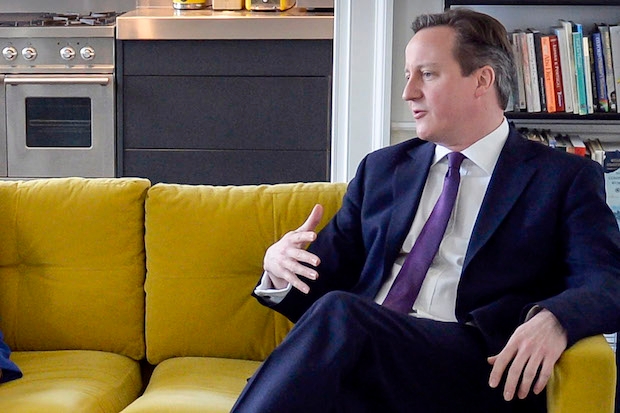The government has unveiled a set of measures to curb immigration. David Cameron has written an article in the Telegraph about what the government has already achieved and what it plans to do now. He has three themes.
1). To tackle illegal immigration. Cameron says that the government has shut more than 750 of ‘bogus’ colleges. He wants to go further: colleges will lose their licenses if 10 per cent of their pupils are refused visas. Cameron also repeats some of the provisions of the Immigration Act 2014. From November, for example, a system will be imposed to ensure that landlords have to account for the immigration status of their tenants. And deportation will be made easier by emphasising the qualifications in Article 8 of the European Convention of Human Rights, the right to family life, and by instituting a ‘deport first, appeal later’ policy whereby illegal immigrants and foreign criminals to whom there is ‘no risk of serious harm’ are deported and then appeal the decision from their homeland.
2). To ensure that the ‘right people come here for the right reasons’. Cameron takes the opportunity to display his ‘pro-immigration’ credentials. He reminds voters that the government has introduced special visas for graduate entrepreneurs and other ‘exceptionally talented’ people. He also says that the cap on non-EU migration has not hit growth because it has been under subscribed each year.
3). To tighten welfare entitlements for EU migrants. Cameron reminds voters that last year the government raised the threshold for EU migrants’ access to JSA and child benefit from 0 months to 3 months. Now he intends to reduce the amount of time that those migrants can claim those benefits from 6 to 3 months. Cameron also wants to limit the EURES scheme, which advertises more than 1 million jobs in the UK across the entire EU. He wants to reduce that number by 500,000. He also reminds voters that the government has banned overseas-only job advertisement.
Cameron signs off by defending the government’s welfare and education reforms by arguing that they are essential to tackling immigration by reducing demand for foreign workers.
It is telling that David Cameron has taken ownership of this article and these policies, rather than the usually irrepressible Home Secretary Theresa May. The manoeuvre bears the mark of Lynton Crosby, who plans to make immigration central to an election campaign dominated by Cameron’s personality. The principal target is Ukip; specifically, those Ukip sympathisers who might return to Tory colours. The message to immigrants is, therefore, suitably robust: ‘you cannot expect to come to Britain and get something for nothing.’ Cameron goes on to say: you can’t trust ‘soft touch’ Labour on immigration. The signalling is not subtle.
There is, however, some doubt about whether these measures will be effective. The European Commission recently concluded that ‘economically non-active EU mobile citizens account for a very small share of beneficiaries’. In other words, curbing access to benefits will not solve the problem. The Commission’s findings are, of course, disputed; but, nevertheless, doubt remains. What is not in doubt is that the government is miles away from achieving its goal of reducing net migration ‘to the tens of thousands’ – a line that Labour is pushing this morning, having been caught on the hop by the Conservatives’ announcements (Andy Burnham was just ambushed on the Today programme after speaking about the NHS). Politically, Cameron remains a hostage to those words.
One other thing to note is that the government is hemmed in by Jean-Claude Juncker, who has made it clear that there will be no restrictions on freedom of movement. Juncker did, however, say that it is for member states to shape their welfare policies as they see fit. Will Cameron go further than he has today?
UPDATE: Sir Andrew Green of Migration Watch has just told the Today programme that a system of work permits needs to be introduced for non-skilled EU migrants, especially from eastern Europe. This will reduce the net flow of low skilled EU migrants. I expect that such a move would be unacceptable to the EU because it would restrict freedom of movement.






Comments